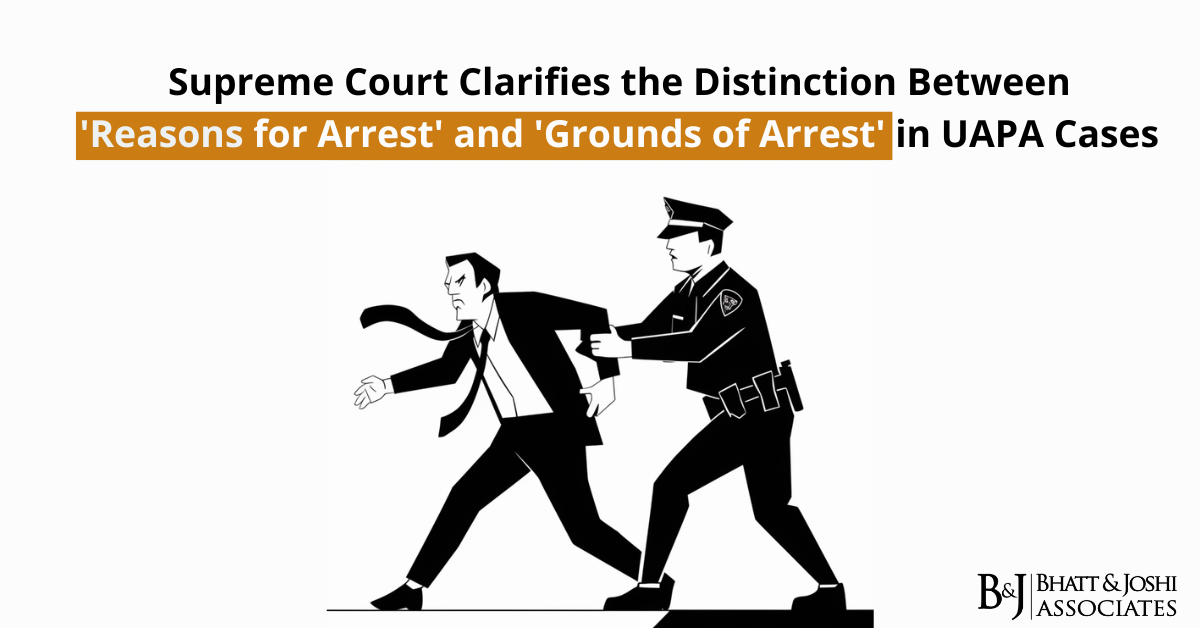In a landmark decision, the Supreme Court emphasizes the need for specificity in the ‘grounds of arrest’ to uphold the legality of detentions under the UAPA.

Introduction
In a recent judgment, the Supreme Court of India has made a critical distinction between ‘reasons for arrest’ and ‘grounds of arrest,’ underscoring the legal requirements that must be met to uphold an arrest under the stringent Unlawful Activities (Prevention) Act (UAPA), 1967. This clarification came during the hearing of the case involving NewsClick founder Prabir Purkayastha, whose detention was declared illegal due to insufficient specific grounds being provided at the time of arrest.
“These reasons would commonly apply to any person arrested on charge of a crime whereas the ‘grounds of arrest’ would be required to contain all such details in hand of the Investigating Officer which necessitated the arrest of the accused.”
The Court emphasized that while ‘reasons for arrest’ are usually broad and can apply generally, ‘grounds of arrest’ must be detailed and personalized, directly relating to the circumstances of the accused. This distinction is crucial for ensuring that the rights of the arrested individual are not violatedadhering to Legal Requirements for Arrest..
Implications for Law Enforcement
This ruling has significant implications for law enforcement agencies, as it mandates that detailed and specific reasons must be provided in writing at the time of making an arrest under the UAPA. The Court criticized the handling of Purkayastha’s arrest, noting:
“Column No. 9 of the arrest memo (Annexure P-7) which is being reproduced hereinbelow simply sets out the ‘reasons for arrest’ which are formal in nature and can be generally attributed to any person arrested on accusation of an offence whereas the ‘grounds of arrest’ would be personal in nature and specific to the person arrested.”
Consequences of Non-Compliance
The Supreme Court’s judgment underscores that failure to provide specific ‘grounds of arrest’ can lead to the invalidation of the arrest and subsequent detention processes, as happened in Purkayastha’s case. This decision reinforces the judiciary’s role in protecting constitutional rights against arbitrary detention and emphasizes the necessity for law enforcement to adhere strictly to legal standards.













